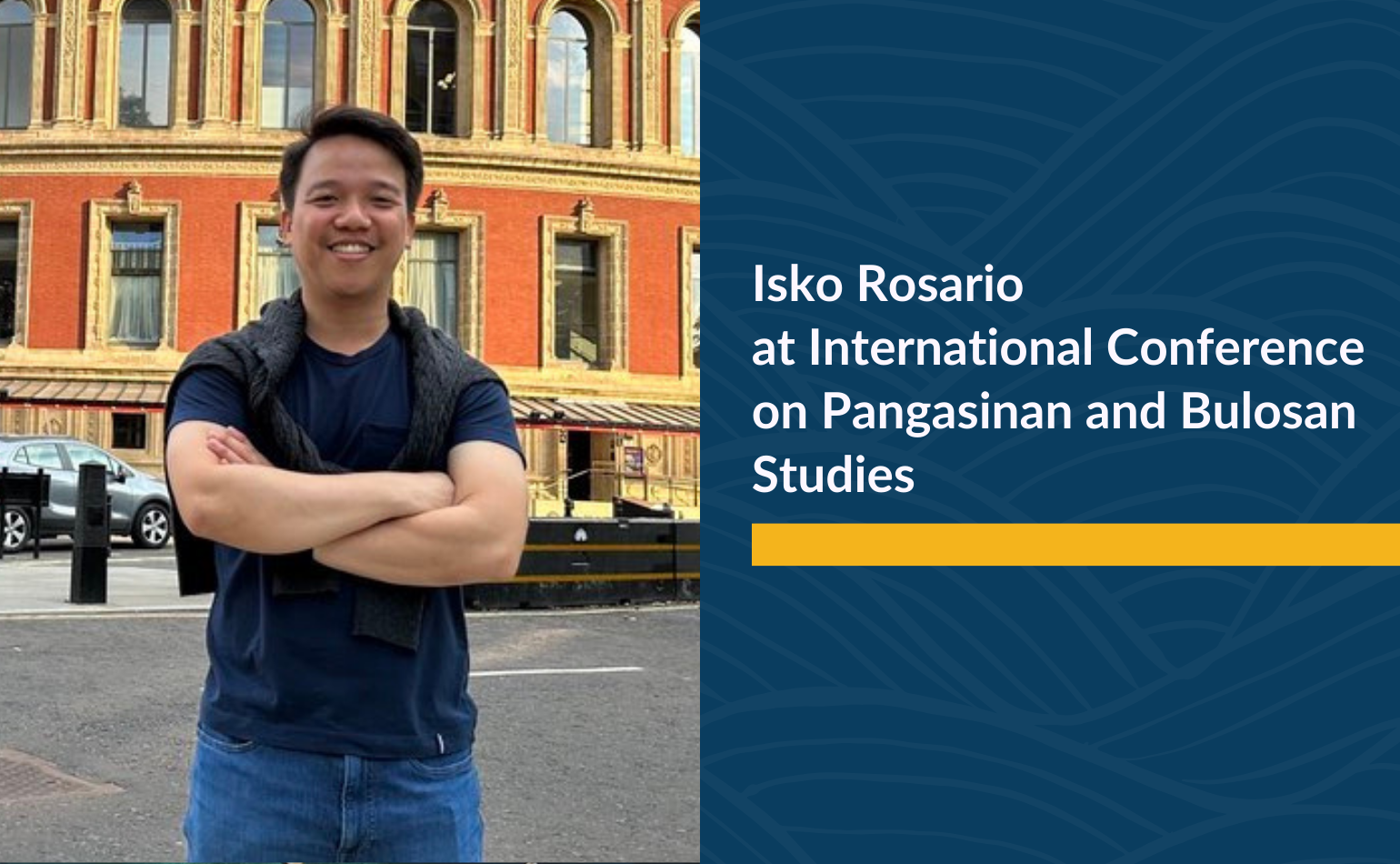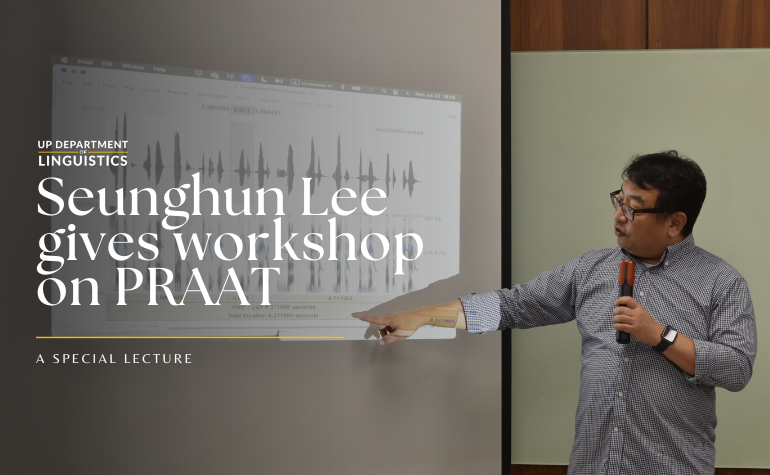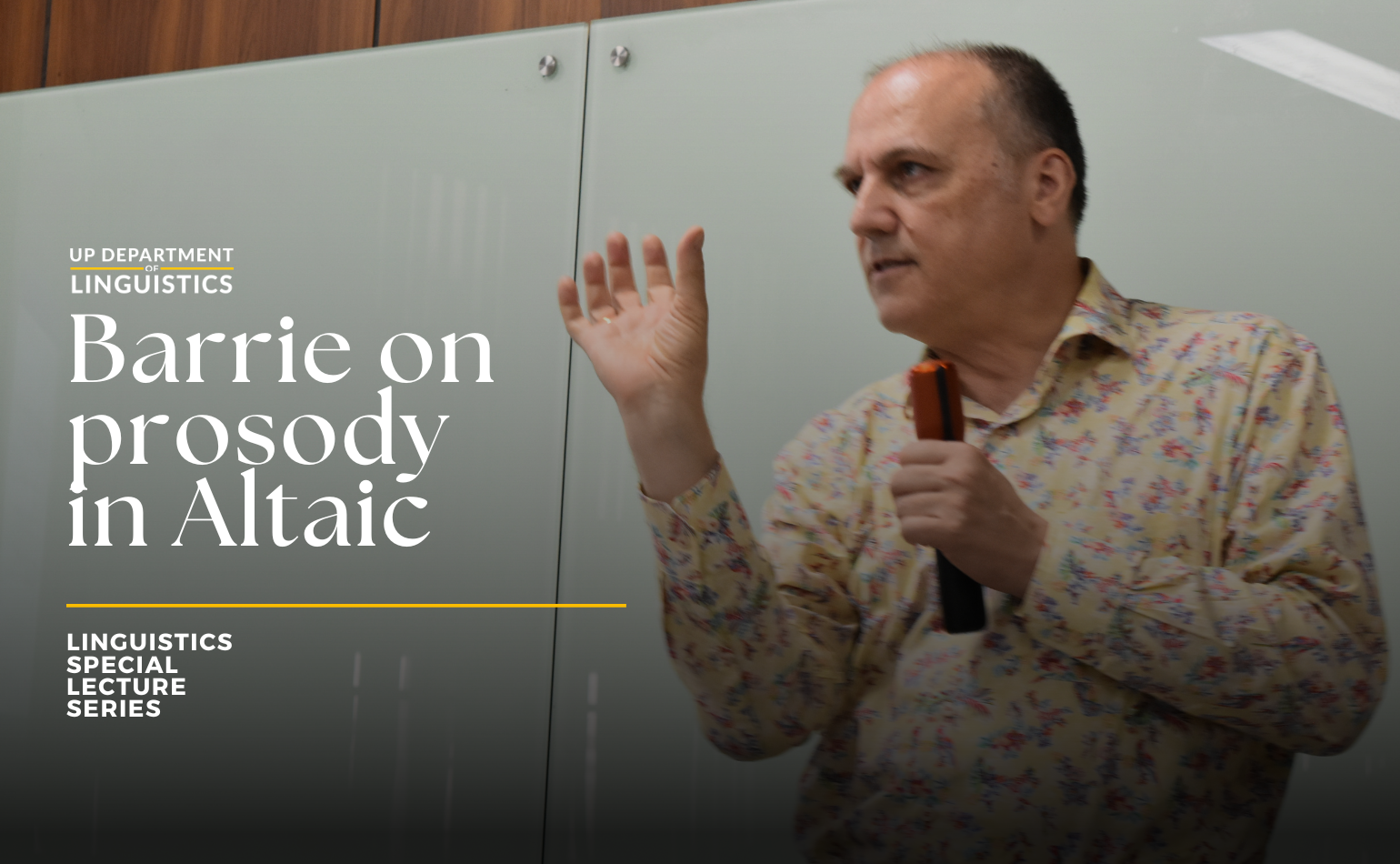
Assistant Professor Francisco C. Rosario, Jr. presented two papers, “Dialectology of Pangasinan: A Preliminary Study” and “The Concept of ‘Gawat’ in Pangasinan,” at the International Conference on Pangasinan and Bulosan Studies hosted by the Center for Pangasinan Studies (CPS) last 27 to 29 November. The theme of the conference was “Expanding the Frontiers of Knowledge on Pangasinan.”
Below are the abstracts to Rosario’s presentations:
Dialectology of Pangasinan: A Preliminary Study
Pangasinan speakers have observed among themselves that the language they speak varies depending on the city or town where they come from. Though this observation is common among the speakers, no actual study has been conducted that provides empirical evidence and explains possible reasons behind these perceived variations in the language. This preliminary study used the basic concepts and methods in dialectology – a subfield of sociolinguistics focused on variations and differences in how language is used. Social factors such as geographic location, socioeconomic status, age, and gender, among others, influence a speaker’s use of language. Linguistic data were collected from Pangasinan speakers from 17 municipalities and cities of the province and were compared and analyzed to identify the phonological and lexical variations in the language. Maps were also created to visually illustrate the variations and show the dialect areas of Pangasinan. The study concludes that geographic location and, more importantly, the history of migration and language contact mainly with the Ilocano speakers in the province, contributed to these variations in the Pangasinan language.
The Concept of “Gawat” in Pangasinan
This paper examines the social, cultural, and linguistic significance of rice in Filipino culture, focusing mainly on Pangasinan. The central emphasis is on the Pangasinan concept of “gawat,” a term usually associated with scarcity and the challenges faced during the lean months of July to September. While sharing semantic similarities with the Tagalog expressions like “inaagosto,” “nordeste,” or “kawit ang palakol,” and the Ilocano expressions “kakirang” and “kapugrot,” the Pangasinan expression “gawat” is unique in that it is related to the experiences of rice farming communities, particularly during the waiting period leading up to rice harvest. By examining the semantic network and metaphorical expressions related to “gawat,” the paper shows how rice is perceived not just as something that meets physical needs but also as a linguistic resource in describing particular experiences and situations within a community.
The event was attended by scholars on Pangasinan from different universities and institutions. It was also held in commemoration of the 110th birth anniversary of Pangasinan-born novelist Carlos Bulosan.
To find out more information about the conference, you may visit the CPS website.
Published by UP Department of Linguistics



